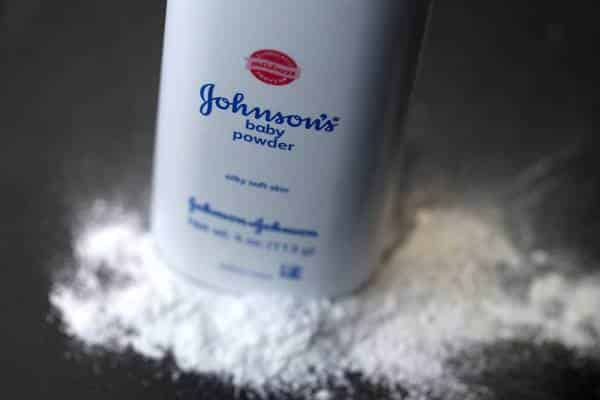Researchers from Virginia have published a new study that appears to confirm growing concerns about the potential for asbestos contamination in talc-based powders to cause a rare but deadly type of cancer known as mesothelioma. The study, published this week in the American Journal of Industrial Medicine, suggests that malignant mesothelioma can develop following exposure to anthophyllite and tremolite contaminants in popular talc-based powders. The study findings were published just one week after a U.S. Food and Drug Administration (FDA) report warned that a number of cosmetic and personal care products containing talc have tested positive for asbestos contamination over the last year. If you believe you have been adversely affected by asbestos-tainted talcum powder products, our consumer advocates at the Consumer Justice Foundation can help. Contact us today to find out if you are eligible for a talcum powder claim.
Asbestos in Talc Linked to Mesothelioma
The only known cause of mesothelioma, a cancer that develops in the thin layer of tissue lining the lungs and other organs, is exposure to asbestos, a mineral fiber that occurs naturally in rock and soil. Because asbestos is commonly found near talc in the earth, talc used in talcum powders and other products can easily become contaminated with asbestos while being mined. And while current research suggests that pure talc does not pose a safety risk, a number of studies have shown that asbestos-contaminated talc can lead to the development of mesothelioma. In one study published in the Journal of Occupational and Environmental Medicine in 2019, researchers highlighted case studies involving 33 people with mesothelioma whose only known exposure to asbestos was through the use of talcum powder products tainted with asbestos.
In this latest talcum powder mesothelioma study, researchers from Peninsula Pathology Associates in Virginia outlined a case series of 75 patients diagnosed with malignant mesothelioma whose only known contact with asbestos was repeated exposure to cosmetic talcum powders. The mean duration of exposure was 33 years, and of the 75 study participants, the mean age at diagnosis was 61. In 12 of the cases, however, the participants were younger than 45 at the time of their mesothelioma diagnosis. Furthermore, all 11 study participants whose nontumorous tissues were tested for the presence of asbestiform fibers showed the presence of anthophyllite and/or tremolite asbestos. Based on their findings, the researchers concluded that “Mesotheliomas can develop following exposures to cosmetic talcum powders. These appear to be attributable to the presence of anthophyllite and tremolite contaminants in cosmetic talcum powder.”
FDA Testing Talc-Containing Products for Asbestos
Because it can absorb moisture, prevent caking and smooth or soften products, talc is used as an ingredient in many cosmetic and personal care products, from eye shadows to baby powders. Since last year, the FDA has been testing cosmetic talcum powder products for asbestos contamination, and earlier this month, the agency reported the preliminary findings of its ongoing investigation, revealing that out of 43 cosmetic products, nine tested positive for asbestos. As a result of this investigation, FDA officials advised consumers to stop using certain talc-based cosmetic products that tested positive for asbestos contamination, including a specific lot of Johnson’s Baby Powder, which resulted in a high-profile recall, and certain tainted Claire’s cosmetics, including eye shadows, contour palettes and compact powders.
Mounting Talcum Powder Litigation
Part of the ongoing talc and asbestos controversy involves determining which companies are liable when consumers develop mesothelioma and other cancers related to asbestos exposure. In recent years, several multimillion-dollar verdicts and settlements have occurred in talcum powder lawsuits filed by plaintiffs diagnosed with cancer after being exposed to talc-based powders like Johnson & Johnson Baby Powder and Shower-to-Shower body powder. To date, Johnson & Johnson faces about 18,000 lawsuits over its talcum powder products in courts nationwide. Each lawsuit involves similar allegations that the company knew for decades that its products may contain asbestos and pose a risk of cancer, yet failed to warn consumers or the medical community.
While most of the legal claims against Johnson & Johnson involve women who were diagnosed with ovarian cancer following years of talcum powder use, a small number of lawsuits involve consumers diagnosed with mesothelioma allegedly occurring as a result of asbestos exposure from contaminated talc. The once-trusted healthcare company also faces a criminal investigation into whether it was aware of problems with asbestos in its talcum powder products and when it knew that the toxic particles could post a risk to users. According to a Reuters report published in December 2018, internal documents prove that Johnson & Johnson had identified asbestos in its talc during at least three different laboratory tests between 1972 and 1975, but declined to report its findings to the FDA.




